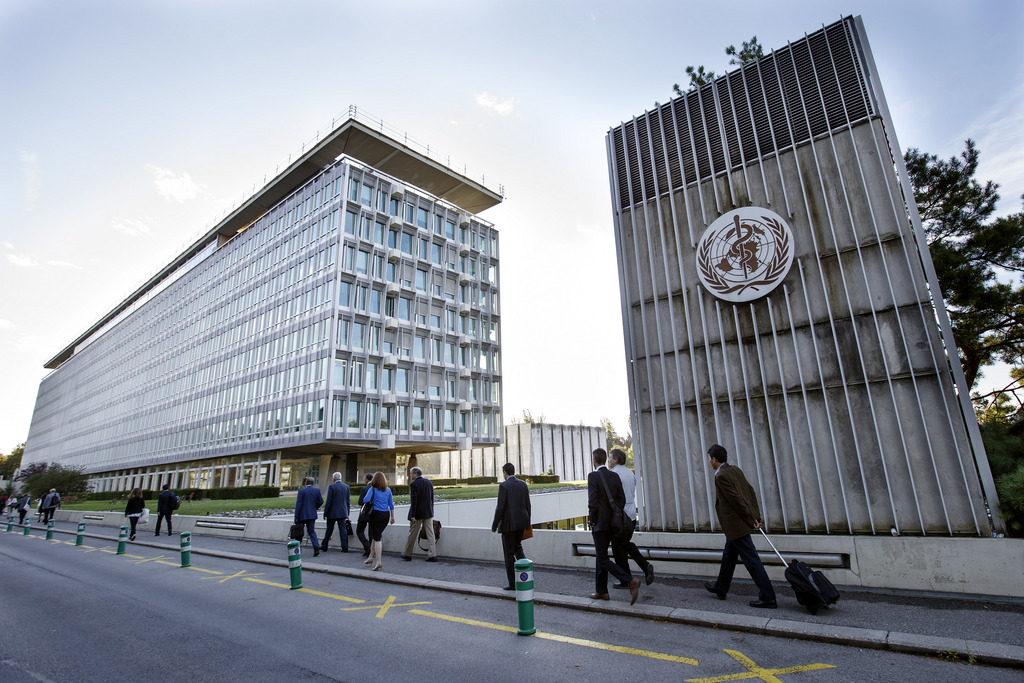Unemployment pushes 45,000 people to suicide a year

Every year around 45,000 people around the world take their life because they are unemployed. A study by scientists in Zurich also found that the financial crisis of 2008 triggered more suicides than previously thought.
In order to find out how suicides are connected to not having a job, researchers at the Psychiatric Clinic of the University of Zurich analysed data from 63 countries between 2000 and 2011.
The results, published in the scientific journal Lancet Psychiatry, showed that in those countries, some 230,000 people took their lives every year, of whom one in five did so directly or indirectly because of unemployment.
In Switzerland, where unemployment is relatively low at 3.2%, the rate of suicide linked to unemployment is one in seven, according to the study’s main author Carlos Nordt.
“We were very surprised by this high number,” he said. “This proves that work is a very important factor.”
Financial crisis
The link between lack of work and suicide was particularly noticeable during the financial crisis of 2008 and the subsequent austerity measures in many countries.
Previous studies had already shown that the number of suicides after 2008 had risen briefly by around 5,000. What was not known, however, was that in 2008 a total of 46,000 suicides were linked to the unemployment rate, according to the new research.
“There were nine times as many suicides with this background as the previously known increase [of 5,000],” Nordt said.
The link between suicide and unemployment was equally strong in all four global regions examined: North and South America: northern and western Europe; southern and eastern Europe; outside America and outside Europe. Data from China and India were unavailable. In addition, gender and age made no difference.
In this respect, Switzerland was an exception: after the crisis of 2008 there was no increase in the rate of suicide or unemployment.
Better training
The researchers also noted that an increase in the suicide rate preceded that of the unemployment rate by about six months.
“The development on the labour market was obviously anticipated and uncertainty about the development of the economic situation appears to have negative consequences,” said Wolfram Kawohl, the study leader.
This meant increasing pressure in the workplace, for example as a result of restructuring, could encourage suicide.
“Staff, for example in the personnel department, need to be trained to better recognise an increased risk of suicide among those affected and how to help deal with it,” he said.
For example, an employer who has to let somebody go – and who they suspect of being a suicide risk – could provide information about the Samaritans or psychiatric facilities.
“That would help in many cases,” Kawohl said.
A total of 1,037 Swiss (752 men and 285 women) killed themselves in 2012. In comparison, 339 people died in road accidents that year. The number of suicides has gradually gone down since the mid-1980s, when more than 1,600 people killed themselves.
In a government report from 2009, hanging accounted for 28% of suicides. Some 23% of people who kill themselves shoot themselves, 14% poison themselves, 14% jump from height, 10% jump in front of a vehicle and 11% use another method. Firearm and hanging suicides are much more common among men, whereas women are more likely to commit suicide by drowning, poisoning, jumping from height or jumping in front of a vehicle. The suicides mentioned above do not include assisted suicide.
(Source: Federal Statistical Office)

In compliance with the JTI standards
More: SWI swissinfo.ch certified by the Journalism Trust Initiative



You can find an overview of ongoing debates with our journalists here. Please join us!
If you want to start a conversation about a topic raised in this article or want to report factual errors, email us at english@swissinfo.ch.